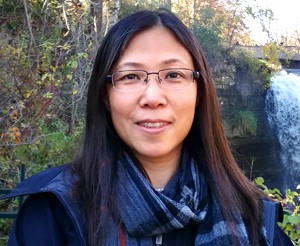
In the United States, breast cancer is the most commonly diagnosed cancer among women and its incidence increases with age. Many of those cancers are treated using chemotherapy, often with problematic side-effects. A new study from University of Minnesota School of Public Health alumna Shuling Li (PhD, ‘13) shows how such side-effects could cause kidney damage in elderly breast cancer patients.
The study was co-authored by Professor Beth Virnig and published in Breast Cancer Research and Treatment.
“The study found that chemotherapy is associated with nearly a three-times increased risk of acute kidney injury within six months of beginning treatment compared to patients not treated with chemotherapy,” says Li, who conducted the research as part of her dissertation.
Acute kidney injury, or AKI, is associated with many adverse health outcomes, including kidney failure and death. The study is one of the first population-based projects to examine the relationship between AKI and chemotherapy.
For the study, Li looked at two groups of women ages 66-89 diagnosed with stages I-III breast cancer between 1992 and 2007. The first group consisted of 14,000 chemotherapy patients and 110 were found to have been hospitalized with AKI. In comparison, a second group of 14,000 non-chemotherapy patients suffered only 30 AKI-related hospitalizations.
“The next question to ask is whether or not chemo really has a toxic effect on kidneys,” says Li.
According to Li, there are two possible explanations for the strong association between chemotherapy and AKI.
The first explanation begins with the fact that people who are treated with chemotherapy have a higher risk for infections and febrile neutropenia, a white blood cell illness. Those infections can advance into the body’s tissues, a condition known as sepsis, and damage the kidneys.
“Patients at high risk of infection from chemo are recommended to receive Granulocyte colony stimulating factor treatment, which will raise their white blood cell levels to help them reduce the risk of infection,” says Li.
Another possible explanation is patients treated with chemotherapy often suffer from nausea, vomiting, and diarrhea, which can make them dehydrated, and eventually, damage the kidneys.
“The low absolute risk of AKI may not suggest a direct toxic effect on kidneys from chemotherapy when treating breast cancer,” says Li. “But chemotherapy was associated with increased risk of AKI among elderly women diagnosed with early-stage breast cancer. The clinicians who treat patients with chemotherapy should be aware of the adverse renal effects of chemotherapy and take the preventative measures to protect them from infections and dehydration to prevent AKI.”
